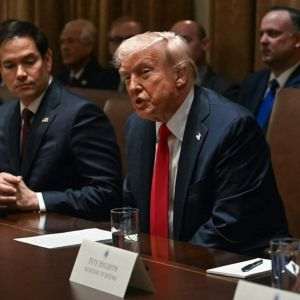Calin Rechea
The Central Bank of Japan has been experimenting for 20 years with all sorts of ordinary and extraordinary measures to bring the economy back to normal. The Government, too. However, the economy refused to return to the growth trajectory and the only result was a public debt surge.
A few days ago, the Bank of Japan announced new economic re-launch measures in the form of subordinated loans to the commercial banks, which they described as "extremely extraordinary," according to the Financial Times. The "subtle" move to support commercial banks did not impress the markets, as everyone is now looking at other indicators of banking capitalization, and not the Tier 1 or Tier 2 capital. The Financial Times explained that the Bank of Japan"s decision came after the Bank of England and the Swiss National Bank had also intervened on the market within some sort of a "competitive depreciation" of their currencies in a move to reduce the pressure on the financial systems.
However, nothing could be compared to the Federal Reserve decision to print 1.15 trillion dollars to buy governmental bonds and mortgage-backed securities. If the Bank of Japan described their intervention as "extremely extraordinary," what can we say about what the Fed is doing?
Analysts with Standard Chartered commented on the Federal Reserve decision in a report called "The Day The Dollar Died," according to the Financial Times website. The helicopter mentioned by Ben Bernanke as a solution to inject money into the economy has become a fleet of strategic bombers employed to apply the "nuclear option."
The Decision to print money in order to directly buy bonds from the market is not just a sign of desperation, but a clear admission of the failure to "repair" the credit market through the previous measures. The Fed are sending a clear message that they are ready to destroy the dollar to save the banking system.
How must the Chinese officials feel, after having been assured a few days ago that U.S. assets were the safest in the world? How credible can the Federal Reserve be, when they promise to sanitize the money from the market as soon as the first signs of recovery appear? It appears that Chairman Ben Bernanke was inspired by his counterpart from Zimbabwe, who "saved" the economy through hyperinflation.
Financial Times" John Authers wonders why the Fed acted now (several analysts told Bloomberg that the decision was premature) and the answer is not at all optimistic: "The Fed may know something about the banking system that others do not."
Irrespective of the more or less apocalyptic visions of the Federal Reserve, we do know that the Zimbabwe solution does not work. Nowadays, the only means of payment accepted over there is gold, as shown in a video documentary recently released on the Internet.
A hedge fund with outstanding results in the last two years, Paulson & Co. (the founder is John Paulson, without any connection to the former U.S. Secretary of the Treasury) anticipated the Fed"s decision and announced the acquisition of 11.3% in South African gold miner AngloGold Ashanti a few days ago. The Financial Times commented that, by so doing, Paulson & Co. was making a short position against governments and preparing for the inflation to come.
In the extremely volatile international context of the last few days, the forecast of the IMF delegation to Bucharest probably came as a cold shower for our authorities. Are a 4% GDP contraction and a 4.7% budget deficit enough to wake them up? The International Monetary Fund also anticipates a three-year crisis for the Romanian economy. Is it absolutely necessary to be in a crisis for so long? No, the crisis can be over in up to two years, if the Government and the National Bank of Romania stop trying to uphold a rotten economic structure.
Complete liberalization of the markets and a drastic reduction of taxes and public spending could resettle the Romanian economy on a new foundation and lead to increased productivity. It is not capitalism that caused the ongoing crisis, but the State"s massive intervention in the economy.
Unfortunately, it is quite unlikely that we will take this road. The Finance minister is convinced that higher excises on fuels will increase State budget revenues, according to the financial press. Has the minister seen the report on industrial fuel consumption presented by the Petrom CEO? How will excise revenue increase, if Petrom is expecting individual consumption to decrease, too, in line with the unemployment surge? Can the Finance minister not see that it is harder and harder to sell governmental bonds with a maturity period higher than one year? And that placements in governmental bonds leave no money for the private companies, which are running out of business?
The high indebtedness of both companies and consumers makes a possible resumption of economic growth quite unlikely, even if lending is revitalized. Most companies, especially the export-oriented ones, probably oversized their production capacity driven by exaggerated optimism about foreign demand. The foreign demand has collapsed in the last few months, even in large economies such as Germany, and there are no prospects for immediate recovery. We will probably witness soon the "creative destruction" mentioned in the works of the Austrian economist Joseph Schumpeter. But that would probably require the emergence of a new class of entrepreneurs, who do not feel they have to ask the State for permission to make profit.
Without profound economic reform, foreign loans will only accelerate inflation, especially considering the alerts coming from the international markets in this respect. How can we protect ourselves from inflation? The Romanian financial press was very late to discover gold as an investment alternative and means of protection against the economic destruction promoted by the Government and the Central Bank. When it was discovered, it came together with the conclusion that there were not really any direct ways to make placements in gold. Perhaps it is not too late for the authorities to offer individuals a solid and stable framework for gold investments.
If the National Bank continues to "protect" confidence in the leu just by eliminating competition with gold, it will turn out to be a very expensive decision for Romania. The national currency is already running alone in an infernal race and it will finish it second.
Disclaimer: This article reflects solely the point of view of the author. It does not reflect or imply the opinions of his employer and does not constitute an investment recommendation.

























































